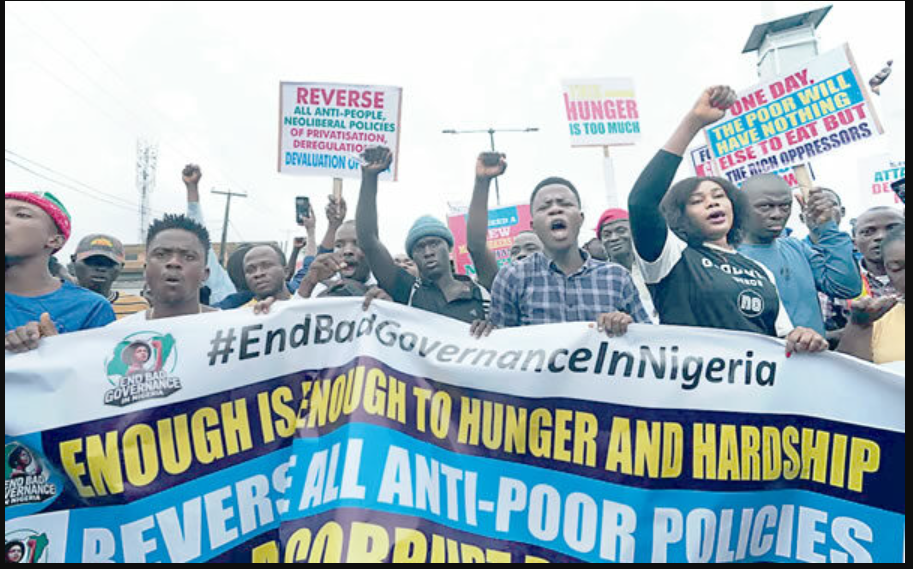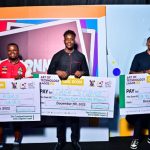
Nation-wide Protest: A Hope or Despair?
On August 1, 2024, Nigeria experienced a nationwide protest that drew attention to the country’s socio-economic challenges and sparked a debate on its potential impact.
The critical question on many minds is whether this demonstration will catalyze the necessary relief or plunge the nation deeper into economic turmoil. The answer lies in the complex interplay between current economic conditions and the outcomes that the protest might yield.
Personal stories highlight the crisis’s gravity. Baruga James, a fisherman from Makoko, struggles with rising food costs, making it hard to feed his family. Similarly, Ahmed Kazeem, a bank employee, finds his decent salary insufficient to keep up with the high cost of living. These narratives reflect the broader issue affecting many Nigerians, who are grappling with soaring prices and economic hardship.
World Bank projections paint a bleak picture, with an estimated 40.7% of Nigerians expected to live below the international poverty line by the end of 2024. Contributing factors include the removal of petrol subsidies, loose monetary policies, and the depreciation of the naira, leading to surging inflation and alarming increases in food prices.
The protest’s demands centre on ending perceived bad governance and ineffective economic policies. If the government responds with substantive dialogue and reforms, it could alleviate some of the economic pressures faced by struggling Nigerians. Protesters are calling for increased investment in infrastructure, effective maintenance, and management to unlock Nigeria’s economic potential and improve living standards. The protest also highlights the need for urgent attention to healthcare and education, with demands for better funding, improved infrastructure, and policies to address brain drain and ensure quality education.
The administration’s response has been mixed. President Tinubu has called for an end to the protests, emphasizing his commitment to addressing the issues raised. However, security forces have clashed with demonstrators in various cities, leading to violence and casualties. The government’s efforts to suppress the protests, including accusations of treason against organizers and the deployment of tear gas, have sparked further controversy and highlighted the deep-seated frustrations among the populace.
Despite these tensions, the protest represents a critical moment for Nigeria. It underscores the urgent need for the government to prioritize accountability, transparency, and the welfare of its citizens. Addressing the root causes of the economic crisis and ensuring equitable distribution of resources can provide a more hopeful future for Nigerians. The protest is a call to action for substantive change, offering a potential beacon of hope in an otherwise challenging economic landscape.
The nationwide protest slated for August 1 – 10, 2024, serves as a stark reminder of the pressing socio-economic issues facing Nigeria. Whether it becomes a beacon of hope or a source of further despair depends on the government’s willingness to engage in meaningful reforms and address the root causes of the crisis.
The voices of Baruga James, Ahmed Kazeem, and countless other Nigerians highlight the urgency of the situation and the need for a comprehensive and compassionate response from the nation’s leaders.









